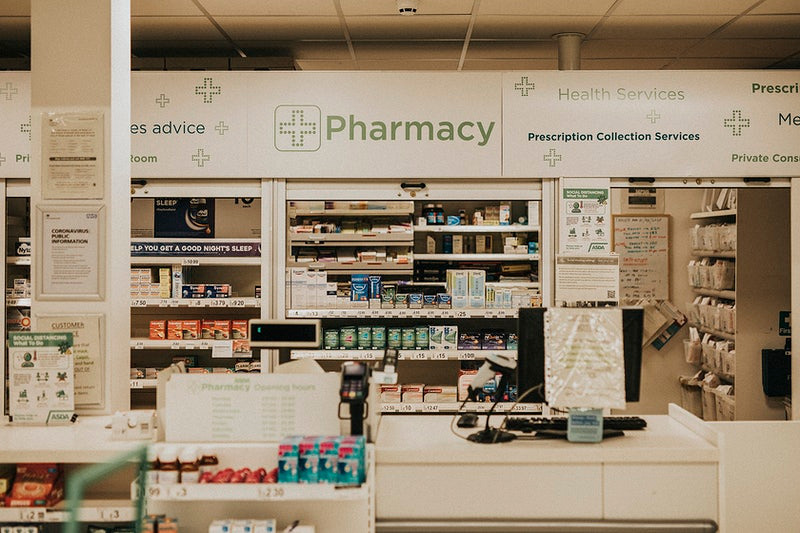
While over-the-counter medications are convenient for treating mild pain and minor ailments without needing a prescription, they are frequently misused like any other drug. Over-the-counter medications can lead to severe health consequences and addiction when not used properly. Addiction to over-the-counter medications can disrupt your life and health, similar to illegal substances or alcohol.
Misusing vs. Appropriately Using Over-the-Counter (OTC) Medications
Some of the most commonly misused over-the-counter medications are readily available and are typically used for self-treating coughs, pain, colds, or sinus infections. When used properly, these over-the-counter medications are a convenient, inexpensive way to treat minor conditions without seeing a doctor.
You can ensure that you are taking these medications properly by following the directions on the packaging or speaking to a pharmacist about any questions you may have.
The National Institute of Drug Abuse defines over-the-counter misuse as:
- taking more than the recommended dosage as directed on the package
- using the medication to reach the desired effect—like euphoria—rather than to treat your condition
- mixing medication together with soda, alcohol, etc. to create a new product
Commonly Misused Over-the-Counter Medications
A study by the National Institute of Health found that the most commonly misused over-the-counter medications include:
- Cough products
- Antihistamines
- Decongestants
- Laxatives
- Pain-relieving medications
- Sleep Aids
People can use over-the-counter medications to induce a high, lose weight rapidly or produce hallucinogenic effects. Unfortunately, these medications can lead to withdrawal symptoms, adverse health effects like stomach pain, loss of consciousness and even fatal overdose when misused.
How to Avoid Misusing Over-the-Counter Medications
You can keep yourself safe from the harmful effects of misusing over-the-counter medications by taking steps to use them properly. Here are a few ideas to ensure you are appropriately using over-the-counter medications:
Speak to a pharmacist. Although you do not need to speak to a pharmacist to purchase over-the-counter medications, they can answer any of your questions or concerns. A study by the National Institute of Health found that talking to a pharmacist about the medicine you wish to use can help prevent OTC medication abuse and improper self-medication.
Read the packaging carefully. Over-the-counter medications will come with clear instructions on exactly what the medication should be used for, the appropriate dosage and what common side effects may be. Following the dosage can help ensure that you are not taking too much or too little.
Understand your condition. Over-the-counter medications work best when they treat the actual condition they are manufactured to treat. For example, you may want to avoid treating heartburn with a decongestant–as that medication is not designed to treat that condition. If you have any questions about what medication is best for your current minor illness, you can speak to a pharmacist to better understand your options.
Ask yourself why you are taking OTC medication. You can develop dependencies on over-the-counter medicines. Checking in and asking yourself whether or not you need to be taking a particular OTC medication can help you know whether you are using them correctly or not.
Do not mix over-the-counter medications. While you can take some over-the-counter medications together, you should avoid mixing them to receive a desired effect like euphoria or stimulation. If you have any questions about which over-the-counter medications can be safely used in tandem, speak to your pharmacist.
Overall, you can ensure you are using over-the-counter medications properly by knowing how to keep yourself safe from misuse.
Treating Over-the-Counter Medication Misuse
Although over-the-counter medications are commonly used and easily obtainable, they can be improperly used to the point where they become an addiction. You may think that abusing over-the-counter drugs is not as severe as abusing substances or alcohol, but that is not true.
Misuse of over-the-counter medications can cause severe anxiety, diarrhea, drowsiness, kidney failure, breathing problems, seizures and other significant conditions. Abusing over-the-counter medications can also lead to a potentially fatal overdose. An overdose requires immediate medical attention, calling 911 and can sometimes be treated with naxolone.
Often, you can treat addiction to over-the-counter medications the same way you treat other addictions. Through behavioral therapy, support groups, residential treatment or outpatient treatment, you can find the support you need to help stop misusing over-the-counter medications.
Using Medications Properly
You can know that you are using over-the-counter medications properly by following directions on packaging or by a pharmacist and only using it for its desired uses. If you find yourself developing a dependency on any over-the-counter medication, consider speaking to a professional for help to reduce your dependency and manage withdrawal symptoms.
When used correctly, over-the-counter medications are convenient to treat minor aches, illnesses and pains. However, keeping in mind their potential for misuse can help you avoid improperly using them.
Casa Palmera in Del Mar, California, can help you stop misusing over-the-counter medications. Our professional and compassionate staff will help you take the steps you need to live an addiction-free life through our personalized treatment plans. At Casa Palmera, we treat the whole person, not just your symptoms. We offer holistic care alongside evidence-based treatment modalities provided by experienced, qualified professionals to ensure you get the care you need. Call Casa Palmera today (855) 508-0473 to learn more about our services.



